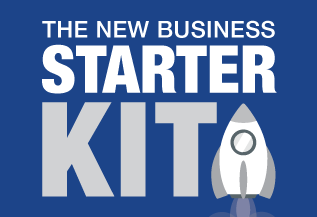First Home Buyer
Buying Your First Home
Stage 1: Set up Clear Goals and Dateline
Studies have shown that you are more likely to be successful if you set clear goals. They get you to focus on what you want to achieve and help you make better decisions to bring that goal closer to fruition, so it makes sense to take the time to set up a goal.
You need to make sure that your goal is Specific, Measurable, Achievable, Realistic and Time specific, that is, SMART. The
SMART approach brings structure that lets you effectively manage your goal to check if you’re on track.
Specific
Goals should always be as specific as possible. The more specific your goals, the bigger the chance you'll get exactly what you’re aiming for. If your goal statement is vague, for example “I want to buy a house”, it’s not so easy to work towards. It just feels too big and too far beyond what life is like now.
Vague goals like this tend to make people procrastinate because there’s nothing to hang on to.
A specific goal about buying your first home is:
“I will save for my deposit and buy my first home”.
Measurable
How will you measure whether you’ve reached your goal? Your goal needs to include something that can be measured so you can track your
progress. In this case the measurable item is money. Add the dollar amount that you would need to save for your deposit to your goal
statement.
“I will save $60,000 for my deposit and buy my first home”
Achievable
Make sure that your goal can be reached. Your goal should stretch you slightly so you feel challenged, but be realistic and defined well enough so that you can achieve it.
Let’s say you earn $5,500 a month and you are single. With day to day expenses it would be unlikely that you can save $3,000 per month. It would cause hardship and lead to anxiety. It would probably be demotivational rather than inspiring. Putting away $1,200 per month is probably more achievable and realistic and anything extra you manage to put away will be a bonus!
Your goal statement is now:
“I will save $1,200 per month in order to achieve my target of $60,000 deposit for me to buy my first home”
Realistic
Your goal must not only be achievable but also be realistic. You must be wondering what the difference is. Let say that you earn a full time salary of $65,000 per year. Setting your sight on a $2 million dollar mansion would be wildly unrealistic, unless you win the lotto. A home priced around $300,000 is a more realistic goal.
So your goal statement is:
“I will save $1,200 per month in order to achieve my target of a $60,000 deposit for me to buy my first home that is valued at around $300,000”
Time Specific
Most people work more effectively when there’s a deadline involved, and your goal is no different.
Make sure you keep your timeline realistic and flexible. Being too stringent could make you miserable, while being too relaxed could lead to procrastination.
So here is what a time specific goal looks like:
“I will save $1,200 per month to achieve my target of a $60,000 deposit by 30 June 2023 (which is just over 4 years from now) for me to buy my first home that is valued around $300,000 by 31 December 2023 (which is just over 4 and a half years from now)”
One more thing, always put your SMART goal in writing. It makes it feel that much more real. Here is a link to a template that you can download and use.
SMART Goal template for First Home Buyer
We’re here to help you
Dealing with banks can be a stressful experience but rest assured that our mortgage broker based in Glenelg (but our mortgage broker services the entire Adelaide Metropolitan area) can help you make the right decision about your mortgage. We will guide you at every stage of your loan process.
Contact us on 08 8376 0455 or drop into our office at 593 Anzac Highway, Glenelg SA 5045.
Next Stages
Stage 2: Work Out How Much You Can Borrow
Related Articles:
The Four Obstacles That is Stopping You From Buying Your First Home
Any advice contained in this article is of a general nature only and does not take into account the objectives, financial situation or needs of any particular person. Therefore, before making any decision, you should consider the appropriateness of the advice with regard to those matters. Information in this article is correct as of the date of publication and is subject to change.














